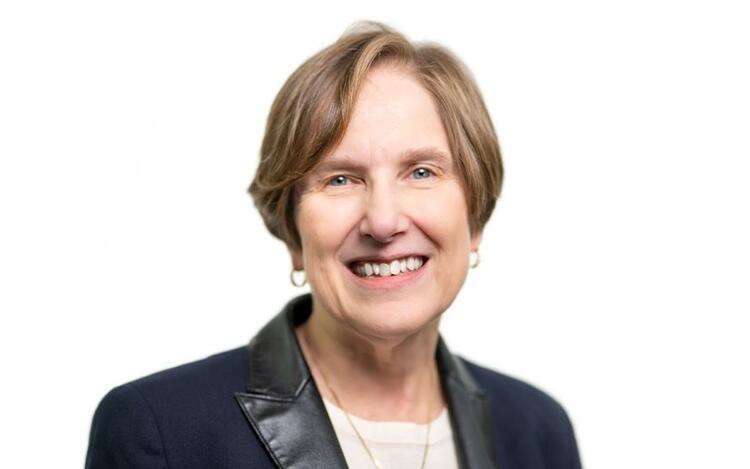“I never had any female role models in my field,” reflects Cindy Forbes (BMath’79). As a young girl growing up in Kitchener in the 1960s and 1970s, few women pursued a university degree, let alone a degree in mathematics or a professional designation.
Fortunately, Forbes received enough encouragement from family members to pursue a university education. She learned that Waterloo was the only university in Canada with a dedicated Faculty of Mathematics, a subject that had always come naturally to her in school, and it happened to be located on the other side of town. “Everything just fell into place,” she remembers.
Forbes switched her major from computer science to actuarial science when she encountered the actuarial profession during a summer spent working at a local life insurance company before starting university. “I had never heard of an actuary, but at that age, you’re attracted to novelty, so I went for it,” she says.
Forbes credits her co-op terms for providing the professional experience she needed to prepare for her actuarial exams and land a job after graduation. “My co-op experience taught me early on how to approach different workplaces with a flexible mindset,” she shares. After a year at Confederation Life, where she had previously completed a co-op term, Forbes went on to rise through the ranks at Manulife Financial for the majority of her career. She spent seven years living and working overseas as CFO of the company’s Asian operations and six years as its chief actuary before transforming its advanced analytics and AI function as the chief analytics officer. Since her retirement in 2020, Forbes has turned her attention to service, having recently joined the Board of Directors of the Ontario Teachers’ Pension Plan in addition to her continuing role as Chair of the University of Waterloo Board of Governors.
Forbes has never felt that her gender has held her back from achieving success in a male-dominated environment, but she recognizes that life is easier in the majority. “When I led the analytics function at Manulife, I noticed that our young female scientists sometimes looked at a loss for how to fit into an overwhelmingly male group of colleagues at lunchtime,” she shares. “They felt they couldn’t relate, and I’m sure I felt like that in those early stages of my career as well.”

Today, the gender balance is nearly 50-50 for people entering the actuarial profession, but Forbes still identifies a strong need to encourage young women to consider careers in mathematics, computer science, and other STEM-related fields. She has participated in the University of Waterloo’s Giving Tuesday initiatives for the past five years, but 2020 was the first year that she directed her giving to the Waterloo Women’s Impact Network (WWIN). “Even in this day and age, too many girls and young women forgo opportunities to pursue careers in STEM because of peer pressure or a lack of confidence,” she believes.
When women with an aptitude for mathematics and computer science miss out on careers that suit their interests and capabilities, professions like actuarial science and data science suffer. “Companies and industries have a less robust talent pool, which impacts the quality of the products and experiences they offer,” Forbes explains. “Every company should aspire to have a workforce that reflects the general population, because you will be less successful in your endeavours if you can’t relate to the customers you’re serving.”
From Forbes’s perspective, networks like WWIN play a critical role in building a talent pipeline through investing in outreach and supporting female scholars. By participating in Giving Tuesday, she hoped to tap into the power of collective giving to amplify WWIN’s reach. “Giving Tuesday encourages other people to give when they might not otherwise because they feel like their contribution goes further,” she says. “WWIN’s mission to encourage women to enter professions like mine is critically important. It must continue.”





